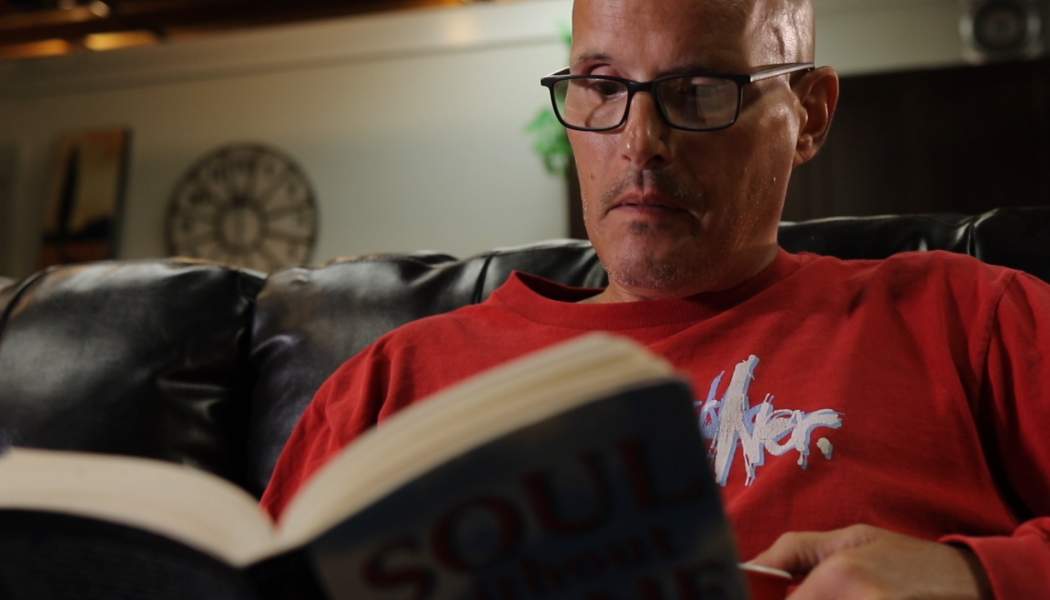Brian is a familiar figure in his community. He is an avid reader who enjoys hiking and is sometimes seen walking with his pet Bearded Dragon draped over his shoulder.
“I love her. She keeps me out of trouble,” he says affectionately. “She was quite small when she was born - she was a runt. I wasn’t sure if she was a boy or a girl, so I named her Sasha.”
He is involved in multiple volunteer projects, such as community clean-ups and anti-stigma work, and provides harm reduction support at the local outreach centre.
“I volunteer doing outreach, giving out harm reduction supplies. I teach people how to use Naloxone. I work at the Cammy Lafluer clinic. I like to help out, steer someone away from using drugs if I can, but if not, I’ll teach them how to do it right, to be safer.”
Brian’s story began in a Vancouver hospital where he was born with serious health complications due to his biological mother’s heroin and alcohol use.
After spending the first year of his life in hospital, Brian was adopted. He grew up in Cranbrook, doing “normal kid stuff” like playing soccer, riding motorbikes, and fishing. But it was never easy.
“I was always awkward. I felt like I was in the way, like I didn’t fit in,” he recalls.
That feeling changed the first time he experienced an opioid. As a young teen he was given morphine in hospital following an injury. For the first time in his life, he says, Brian felt normal…like he belonged.
It is a sentiment supported by substantial research. "Literature shows a connection between trauma and opioid use. We know that early childhood trauma - like being in a hospital for a year - changes the brain and makes it vulnerable to the effects of opioids," says Interior Health Substance Use Director Corinne Dolman.
It was the beginning of a longstanding dependency on opioids, which Brian has managed with prescription methadone for more than 30 years.
“I’ve definitely been impacted by stigma. I see it every day.”
“Just accept people as they are. Just treat people the way you want to be treated.”
“It’s that simple.”
Watch the video and share Brian’s story. Check out more resources about stigma and substance use. Help #EndStigma.
Brian's story is part three in a four part series of stories and videos about the stigma faced by those impacted by substance use.















